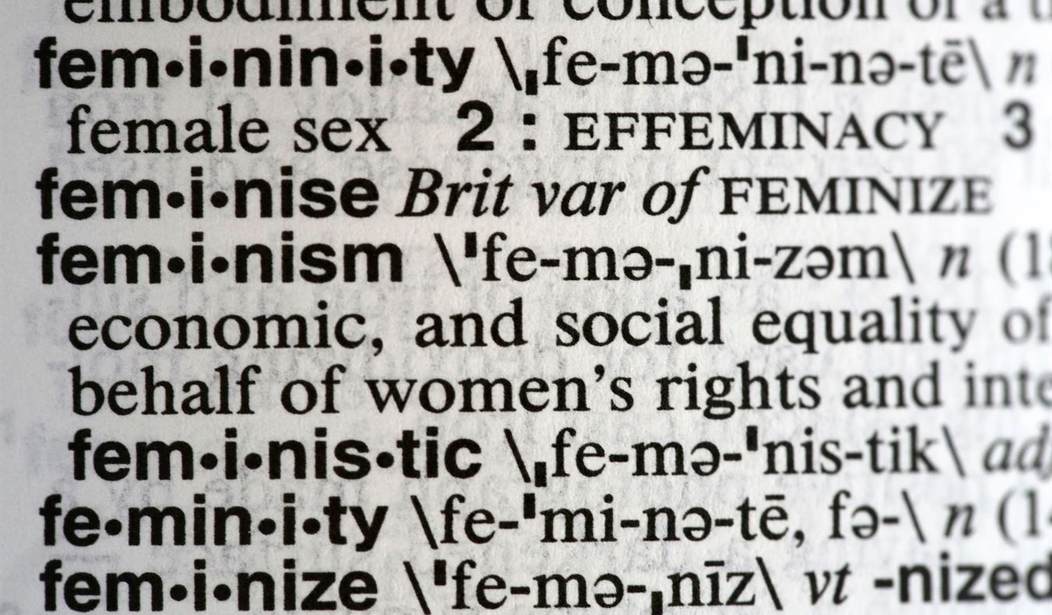"Boys need feminists' help too," declares Feministing.com founder Jessica Valenti. Writing in The New York Times, Valenti worries that while women "protest, run for office, and embrace the movement for gender equality in record numbers, a generation of mostly white men are being radicalized into believing that their problems stem from women's progress."
Valenti cites the "manosphere," the network of websites that peddle misogyny, and she's right that it is disturbing. But Valenti undermines her case by citing the popularity of Jordan Peterson as more evidence of woman hatred. On the contrary, Valenti and other feminists would do well to remove their women-centric blinders and examine the situation of young men more sympathetically.
Valenti imagines that girls are doing great because when the mainstream culture gets them down, they can always repair to "feminist blogs and magazines" while "female college students who have critical questions about how gender shapes their lives can take women's studies courses." Actually, it's very much an open question as to whether feminist interpretations of life make women happier. In my new book, "Sex Matters: How Modern Feminism Lost Touch with Science, Love, and Common Sense," I argue that in many respects it has made them less happy. Certainly, polls such as the General Social Survey suggest that women have become steadily less happy every year since 1972.
As for men, there is lots of evidence that the sexual ecosystem we've evolved since the feminist/sexual revolutions of the 1960s and 1970s has left many men less fulfilled, too. A small percentage of "players" may think they benefit from readily available sex without commitment, but many men are not so suave and find that forming relationships is out of reach. A fringe few describe themselves as "incels" (involuntarily celibate) and fulminate against women. As for the average guy, well, they are more likely to be out of the workforce, unmarried, and alienated from their children than any previous generation in American history. Deaths from suicide and other diseases of despair are rising so steeply that overall life expectancy in America is declining.
Recommended
Valenti imagines that feminist ideas can help men through "the rejection of expectations that men be strong and stoic or ending the silence around male victims of sexual violence." In other words, an invitation to men to see themselves as victims, just as feminists have encouraged women to do for decades. Most women aren't crazy about embracing victimhood -- a 2016 YouGov poll found that only 32 percent of women identified as feminists -- and men are probably even less likely to respond enthusiastically.
Could it be, perhaps, that men actually don't want to be freed from the expectation of being strong? That perhaps they are attracted to Jordan Peterson because he is a refreshing voice of masculinity as traditionally understood? I haven't read him (one of his books is on my nightstand), but from what I gather he encourages young men to take responsibility for their lives and is critical of our culture's feminist-influenced refusal to acknowledge differences between males and females. (I'm already sure I agree about that!)
What Valenti and other feminists do not see is that many of the traits they despise in modern men -- for example, their expectation that they are "entitled to sexual attention" and their attraction to misogynist websites -- are outgrowths of the sexual revolution that feminists themselves promoted. By devaluing marriage and family, feminists helped to create a world in which many men grow up without fathers. About 50 percent of American children will now spend some or all of their childhoods in a single-parent home.
And while feminists spend a great deal of time and attention decrying the flaws of men, they would be well-advised to think about how crucial men are as fathers. There is no data to prove this, but it seems extremely likely that the majority of men who turn to the manosphere for guidance about how to be men -- or, to use Valenti's phrase, "get manly quick" -- are growing up or have been raised without dads. MIT economist David Autor and his colleagues, among others, have shown that boys raised without fathers suffer even more than girls do. They compared fatherless brothers and sisters in Florida and found that the boys were less likely than their sisters to graduate from college, have ambitions for their futures or be employed as adults.
Boys will always seek to be manly. It's in their natures. Feminists do men (and women) a disservice by scorning it. Boys raised by good dads will find manliness in marriage, responsibility and self-control. A better feminism would cherish those things.

























Join the conversation as a VIP Member